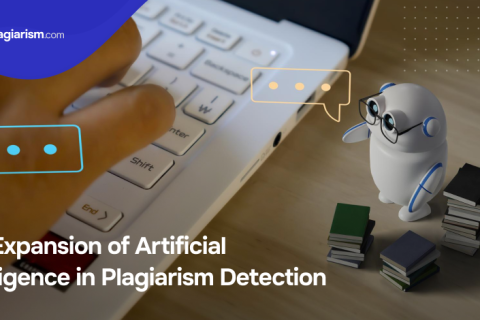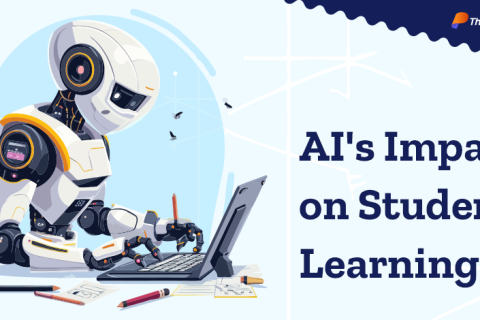What Is Self Plagiarism and Why You Need to Avoid it
20 Feb 2018

Unlike ordinary plagiarism, self plagiarism is a term that not many people are familiar with. Still, it should not be taken any less seriously. In its nature, self plagiarism is not different from the general type, the only difference is that you use not someone else’s words or ideas but your own.
To many students the idea of self plagiarism is foreign, and they argue that it’s not plagiarism at all because the sources that they use were produced by themselves and hence are not stolen from anyone. Nevertheless, the definition of plagiarism doesn’t say that it needs to be stolen, it’s enough to use information that was published by someone before and not give references to it, and you’ll have a plagiarized paper.
Self Plagiarism Definition
So what is self plagiarism? While plagiarism is a way if using someone else’s ideas, statements, images or products and presenting them as your own, self plagiarism happens when you reuse completely or partially a work that you’ve already submitted before without mentioning the original source. In most cases, self plagiarism is presented in student publications.
Since publishing the results of their scientific researches is compulsory for many students, they try to find a way out by publishing numerous articles that have different introduction but present the exact same information. Since the overlap of information is never acknowledged, this is plagiarism in its original form.
Forms of Self Plagiarism
There are two main types of self plagiarism – complete and segmented. The first one happens when a student submits a paper that is roughly a copy of another one he or she has previously submitted. The differences might be present in the title, the order of the sources used in the research, maybe some insignificant changes in the text itself, but the ideas, results and conclusions stay exactly the same. Sometimes the author of such publications goes even further and tries to disguise an old publication for a new one by changing formatting, using different styles of tables and schemes or removing some references. In the end, the result stays the same, and they end up with a completely plagiarized text.
Segmented plagiarism is less obvious and sometimes overlooked. In such cases, the authors refer only partially to their previous researches borrowing some numbers and ideas. Nevertheless, if this information is not cites as one coming from a different source, it’s still plagiarized and frowned upon in the academic circles.
Why Is it Bad?
There are numerous reasons why self plagiarism is a negative phenomenon. First and foremost, plagiarism of any shape and form is completely unacceptable in an academic environment. Depending on your seats of learning, you might end up with a lower grade, retake the course or even lose your student status. None of these would make your college experience productive.
Secondly, it is wrong to think that your previous work has been so well-written that you can from now on base all your next assignments on it. While being a student, you go through many stages of growing as a human, writer and scientist. If you happen to have a chance to read your freshman year work right before your graduation, you’ll notice how much you’ve evolved in terms of critical thinking and writing skills. Self plagiarizing your previous works means that you are not moving forward or discovering new things but stay grounded to a limited amount of information.
Copying and pasting your previous work as an answer to a new assignment means that you completely miss out on the unique aspects of it. When given a chance to broaden your knowledge and discover new horizons, you ruin this possibility by going back to something you’ve already tackled. Finally, self plagiarism and plagiarism in general depict an image of a student who is not capable of raising to the challenges of academic environment, and that’s not a feature a future professional should possess.
How to Avoid Self Plagiarism
As far as avoiding this harmful practice goes, the answer to that is simple – just don’t use your previous works without citing them. However, sometimes self plagiarism can happen not intentionally, and you might end up in a difficult situation without even realizing it. To avoid that, follow these tips:
- do not use a part of a previous assignment in a new one to avoid dealing with citing;
- never write a new assignment using an old one as a template because you’ll still end up with preserving some bits;
- if you’re looking back to a previous assignment for an additional information or want to recall something, make a note mentioning what exact part you’ve used to be able to cite it later and include into your source list;
- do not try to create a new assignment out of an old one because you’ll never get to write about two identical things;
- think and try to predict what exactly is expected from you during fulfilling a new assignment – it’s very likely that you cannot apply the previous objective;
- use only the information that is relevant to the given topic.
Even if a new assignment you’re writing bears some similarities to the previous one, you still need to come up with a work that is different and unique. For that you might need to use different sources to study alternative points of view, to focus on a different detail than before (or generally study the subject in more details), to analyze the concept deeper, to write about the subject from a different viewpoint or to seek and focus on different arguments.
In sum, plagiarism as well as self plagiarism have no place in an academic environment. Depending on the situation, these actions can be a reflection of a poor level of knowledge, inability to adapt to the study environment or irresponsible attitude to education. Thus, you should do your utmost to avoid making such mistake in your academic works.






